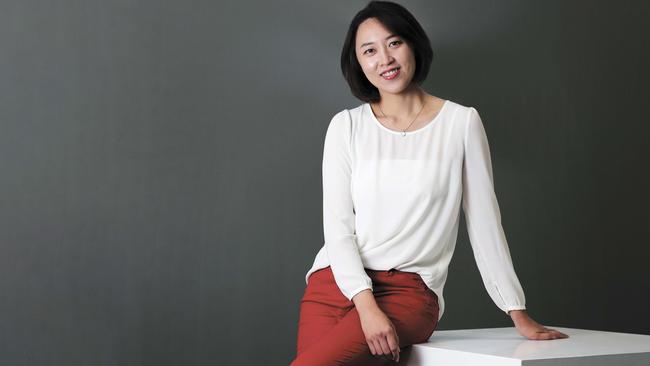How a global network has underpinned Chinese consumer demand for Australian products
Our trading relationship with China is strained, but this operator is undeterred.

Livia Wang calls them “solopreneurs” — the more than 200,000 brand influencers around the world who will help her business double this year despite the COVID-19 pandemic. Once described as daigou — which is Chinese for “buy on behalf of” — these “key opinion consumers” have been transformed by Wang’s company, Access Corporate Group, into a global network that has underpinned Chinese consumer demand for Australian retail beauty, health and lifestyle brands.
“The daigou title has morphed to one of brand ambassador and influencer, and it isn’t just a Chinese thing, it is a global trend,’’ says Wang. “The influencers can have a close connection with their consumers. They can talk to them at any time. It is not offline or online. That is much more powerful in this (lockdown) environment. To be able to share their stories, inspire their consumers, and pick and choose the right products for them.”
Wang says Access — which makes its money distributing the products of its brand partners, earning a margin on every sale — pivoted during the March quarter from online and physical retailing to an online offering using influencers, a change that helped it generate more than $300m in revenue. Access is also selling to customers beyond China, with plans to open offices in North America, and the business will double in size this year after more than doubling last year.
Before the crisis Access had been investing in the development of influencers with education, training and brand experience, while ensuring they complied with tax and business regulations after China dramatically tightened e-commerce regulations last year. This has become even more fundamental during the past two months, not only for its influencers but also for Access’s 1200 staff globally — including 800 in China.
“We did act very quickly globally to have a central point of communication and bring everyone together,” Wang says. “We started to talk to all of our influencers globally to make sure our operation still ran very smoothly.”
One Zoom meeting she conducted had 500 people online from across the world.
The key to Access’s success has been using data analytics to monitor changing consumer demands and responses in real time, then relaying those trends to brands, which need to alter manufacturing as sales change. Access now represents 20 brands including Vida Glow, Melrose, Nu-Lax, Robert Oatley Wines, Familia Torres and most notably Napoleon Perdis, which it purchased last year. Ten more will be added this year as new categories such as oral care, pet care and health supplements have thrived during the crisis.
“Health products have sold very well,” says Wang. “We try to educate how important the immune system is.” Superfoods have been in demand and “you would be surprised how much we have sold in terms of cosmetics, for example skincare. We hosted a morning cosmetics class for two weeks, two months ago, when the crisis first happened.”
There have been challenges, most notably dealing with suppliers and partners in logistics and warehousing as airfreight space disappeared almost overnight. DHL and other logistics partners still shipped 7.5 million products for Access in the March quarter, three times shipments for the big China Singles day sale in November. Costs have skyrocketed. Access spent $850,000 on airfreight last month, five times its usual monthly freight bill.
“We worry about the travel ban,” says Wang. “I think it is temporary. But I think our business must be strong enough to go through this time. It is a great test of time to see how much resilience we have in the business.”


To join the conversation, please log in. Don't have an account? Register
Join the conversation, you are commenting as Logout